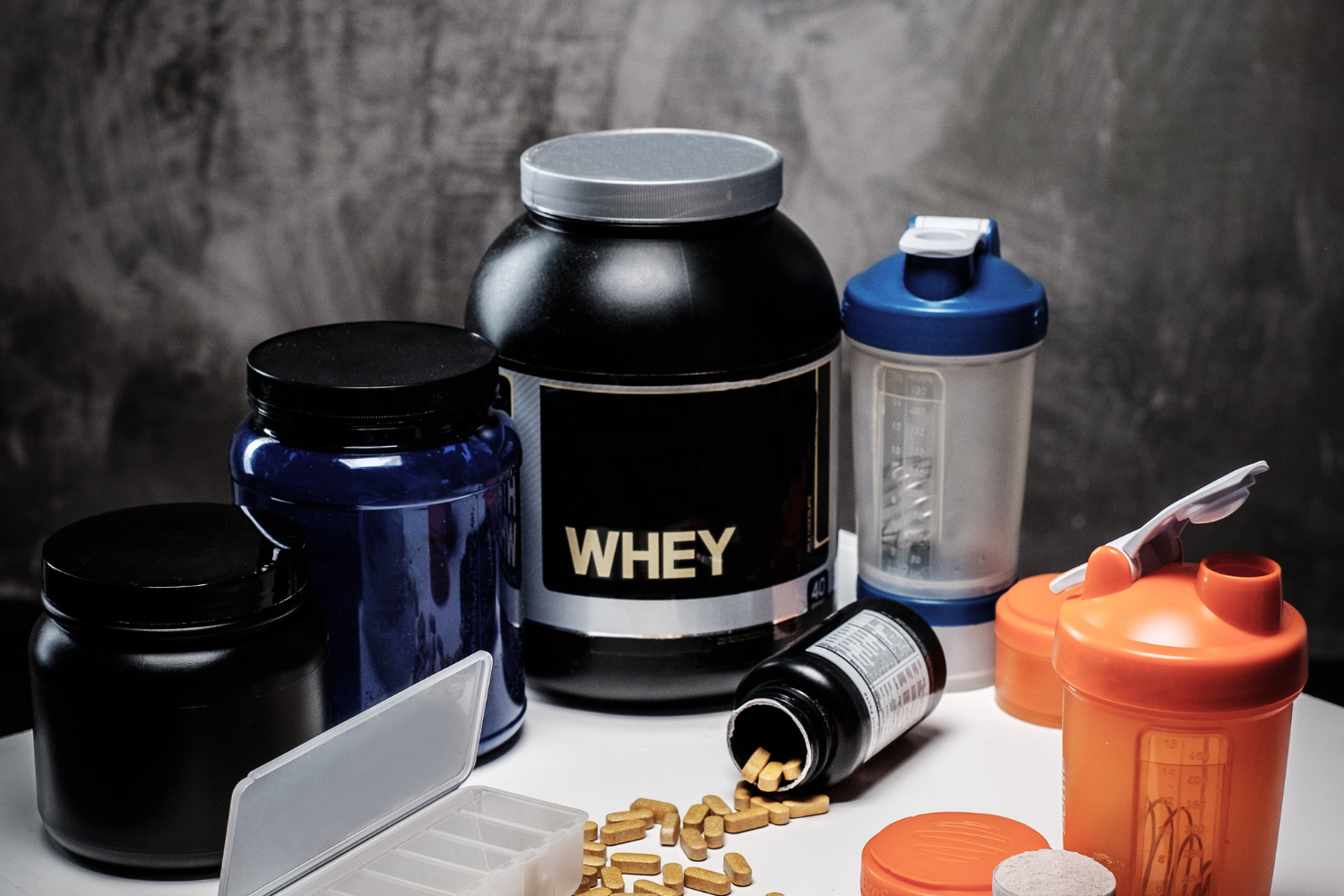The demand for energy and performance supplements is rising as consumers seek solutions to support busy lifestyles, fitness goals, and productivity. Nutrition brands have an opportunity to develop targeted products that meet the needs of athletes, professionals, and wellness enthusiasts.
Understanding ingredient selection, formulation strategies, and market positioning is essential for creating effective supplements that stand out. This guide explores key considerations for developing energy and performance products, from selecting quality ingredients to optimizing energy efficiency in production and packaging systems.
Table of Contents
ToggleUnderstanding Energy & Performance Supplements
Energy and performance supplements are designed to help individuals sustain stamina, focus, and endurance. They may assist with reducing fatigue and supporting recovery for those with demanding lifestyles.
What Are Energy & Performance Supplements?
These supplements are formulated to support energy levels, aid physical performance, and assist in post-exercise recovery. They often contain ingredients that help the body generate energy, optimize energy consumption, and minimize fatigue.
Many products target common issues like reduced energy, mental fog, and poor endurance. They help individuals sustain focus, maintain strength, and support overall performance, making them useful for various lifestyles and professions.
Common Use Cases
People use energy and performance supplements to improve daily function and achieve specific fitness or productivity goals. Common use cases include:
- Athletes seeking peak performance and faster recovery after intense training.
- Busy professionals needing sustained energy and mental clarity throughout the day.
- Wellness enthusiasts prioritizing endurance, focus, and overall well-being.

Common Types of Energy & Performance Supplements
These supplements come in various forms to suit different preferences and lifestyles. Choosing the right format helps maximize convenience, effectiveness, and absorption.
Popular Formats
Different supplement formats provide flexibility in how consumers integrate them into their routines. Popular options include:
- Capsules – Pre-measured doses of energy boosters like caffeine or adaptogens such as Rhodiola rosea.
- Powders – Customizable options for mixing into shakes or drinks, commonly used by fitness enthusiasts.
- Energy Bars – Portable solutions fortified with protein and carbohydrates for sustained energy.
- Ready-to-Drink Beverages – Convenient, pre-made drinks combining hydration with energy ingredients like electrolytes and green tea extract.

Benefits of Offering Energy & Performance Supplements
Adding energy and performance supplements to a product lineup helps nutrition brands meet growing consumer demand while expanding market reach. These products offer solutions for sustained energy, improved stamina, and better recovery.
Meeting Consumer Demand for Sustainable Energy Solutions
Consumers are shifting toward clean-label and natural energy products, seeking alternatives to artificial stimulants. The demand for plant-based, non-GMO, and low-sugar supplements continues to grow as people look for healthier ways to enhance energy use.
Non-jittery, efficient and long-lasting energy solutions are becoming more popular than traditional energy drinks. Ingredients like green tea extract and adaptogens provide steady energy without crashes, appealing to those who want improved performance without overstimulation.
Expanding Product Lines for Broader Appeal
Energy supplements can complement existing product lines focused on stress relief, immunity building, and overall wellness. Combining these benefits allows brands to create multi-functional solutions that address multiple consumer needs.
Bundling energy supplements with pre- and post-workout products or cognitive enhancers increases value for customers. Offering stackable solutions, such as a morning energy blend and an evening recovery formula, enhances usability and convenience.
Enhancing Brand Credibility and Differentiation
Unique formulas with adaptogens, B-vitamins, and superfoods help brands stand out in a competitive market. Products designed for energy efficiency and performance improvements appeal to health-conscious consumers.
Certifications like GMP, non-GMO, or vegan-friendly options strengthen brand credibility. Transparent sourcing and high-quality ingredients help build trust with customers seeking reliable and effective supplements.

Key Ingredients in Energy & Performance Supplements
Selecting the right ingredients is essential for creating effective energy and performance supplements. Natural energy boosters, adaptogens, and recovery compounds are key in improving stamina, focus, and muscle recovery.
Natural Energy Boosters
Caffeine enhances alertness and physical performance, making it a key ingredient in many supplements. However, balanced dosages are important to prevent overstimulation and energy crashes.
Green tea extract contains antioxidants and naturally occurring caffeine, which may help with focus and provide a gradual energy boost.
Adaptogens
Ashwagandha is commonly used in energy and performance formulas due to its adaptogenic properties. It promotes endurance and resilience to physical and mental fatigue.
Rhodiola rosea is used in energy supplements for its potential to support endurance and help manage fatigue. It helps the body adapt to stress and sustain energy levels.
Recovery and Hydration
Electrolytes like sodium, potassium, and magnesium are included in hydration-focused supplements to help replace minerals lost through sweat. They support hydration, muscle function, and overall energy balance.
BCAAs are commonly included in supplements to support muscle protein synthesis and help active individuals meet their nutritional needs.
Cognitive Enhancers
L-theanine promotes calm focus and works well when paired with caffeine. It helps smooth out energy levels while improving mental clarity.
Ginseng is traditionally used in supplements for its potential to support focus and overall vitality.

Steps for Nutrition Brands to Develop Energy & Performance Supplements
Developing energy and performance supplements requires careful planning, from market research and data to product formulation and marketing strategies. A structured approach helps brands create high-quality, effective products that resonate with consumers.
Conduct Market Research and Define Your Target Audience
Identifying key customer segments, such as athletes, professionals, or wellness enthusiasts, helps shape product development. Each group has unique energy and performance needs influencing formulation, technology, and marketing strategies.
Researching market gaps, such as plant-based performance enhancers or stimulant-free energy solutions, provides opportunities for differentiation. Understanding trends allows brands to develop targeted supplements that align with consumer demand.

Source High-Quality Ingredients
Partnering with reputable suppliers ensures ingredient quality, safety, and efficacy. Verified sourcing helps brands maintain consistency and build trust with consumers.
Compliance with industry standards and regulatory requirements is essential. High-quality ingredients contribute to better product performance, cost, and customer satisfaction.
Formulate Effective Products
Combining complementary ingredients, such as caffeine and L-theanine, enhances product effectiveness. Blending ingredients strategically helps create balanced energy support.
Using clinically studied dosages helps support the safety and effectiveness of supplements. Non-habit-forming formulations appeal to consumers looking for sustainable energy solutions.
Design Packaging and Labels
Regulatory compliance for ingredient transparency and product claims is crucial. Labels should clearly communicate key benefits and formulation details.
Bold, energetic designs attract active consumers and align with the supplement’s purpose. Packaging should reflect the product’s function and appeal to target demographics.
Market and Launch Effectively
Digital marketing, influencer partnerships, and engagement with fitness communities help raise brand awareness. Targeted campaigns showcase product benefits and attract potential customers.
Offering introductory bundles or trial packs encourages product testing. Promotions, discounts, and loyalty programs increase customer retention and long-term brand growth.

Marketing Strategies for Energy & Performance Supplements
Effective marketing strategies help brands connect with their audience and drive sales. Highlighting product benefits, leveraging influencer partnerships, and offering trials can boost visibility and customer engagement.
Highlight Benefits that Resonate with Consumers
Consumers look for products that solve specific, energy savings and performance challenges. Key benefits to highlight include:
- Formulated to provide a sustained energy boost
- Enhances stamina and recovery
- Supports mental focus and productivity
Partner with Influencers in Fitness and Wellness
Collaborating with fitness trainers, athletes, and productivity experts increases brand credibility. Influencers help demonstrate product effectiveness and reach targeted audiences.
Offer Trials and Bundles
Sample packs and discounted bundles encourage new customers to try products. Limited-time offers and introductory promotions help build trust and drive sales.
Loyalty programs and subscriptions create long-term customer relationships. Rewarding repeat purchases strengthens brand engagement and retention.

Maximizing Success in the Energy & Performance Supplement Market
The demand for energy and performance supplements continues to grow, creating opportunities for nutrition brands to expand their product lines. Clean-label formulations, backed by effective ingredients, help brands stand out in a competitive market.
Prioritizing product quality, safety, and transparency builds consumer trust and long-term loyalty. Strategic marketing efforts, including influencer partnerships and trial offerings, further enhance brand visibility and customer engagement.
Frequently Asked Questions
What certifications should energy supplements have?
GMP certification, third-party testing, and potentially organic or vegan certifications.
How long does it take to develop and launch an energy supplement?
It typically takes 6–12 months, depending on formulation, testing facilities, and compliance processes.
What are the most popular formats for energy supplements?
Capsules, powders, energy bars, and ready-to-drink beverages are consumer favorites.
Are natural energy supplements better than synthetic ones?
Natural supplements often have fewer side effects and appeal to health-conscious consumers.
Can energy supplements also support mental clarity?
Yes, ingredients like L-theanine, ginseng, and green tea extract enhance energy and focus.
References
- National Institutes of Health. (2023). Dietary Supplements: What You Need to Know. https://ods.od.nih.gov/factsheets/WYNTK-Consumer/
- The National Academies Press. (2019). Dietary Reference Intakes for Sodium and Potassium. https://nap.nationalacademies.org/catalog/25353/dietary-reference-intakes-for-sodium-and-potassium
- U.S. Food and Drug Administration. (2024). Current Good Manufacturing Practices (CGMPs) for Food and Dietary Supplements. https://www.fda.gov/food/guidance-regulation-food-and-dietary-supplements/current-good-manufacturing-practices-cgmps-food-and-dietary-supplements
- U.S. Food and Drug Administration. (2024). Dietary Supplements. https://www.fda.gov/food/dietary-supplements




